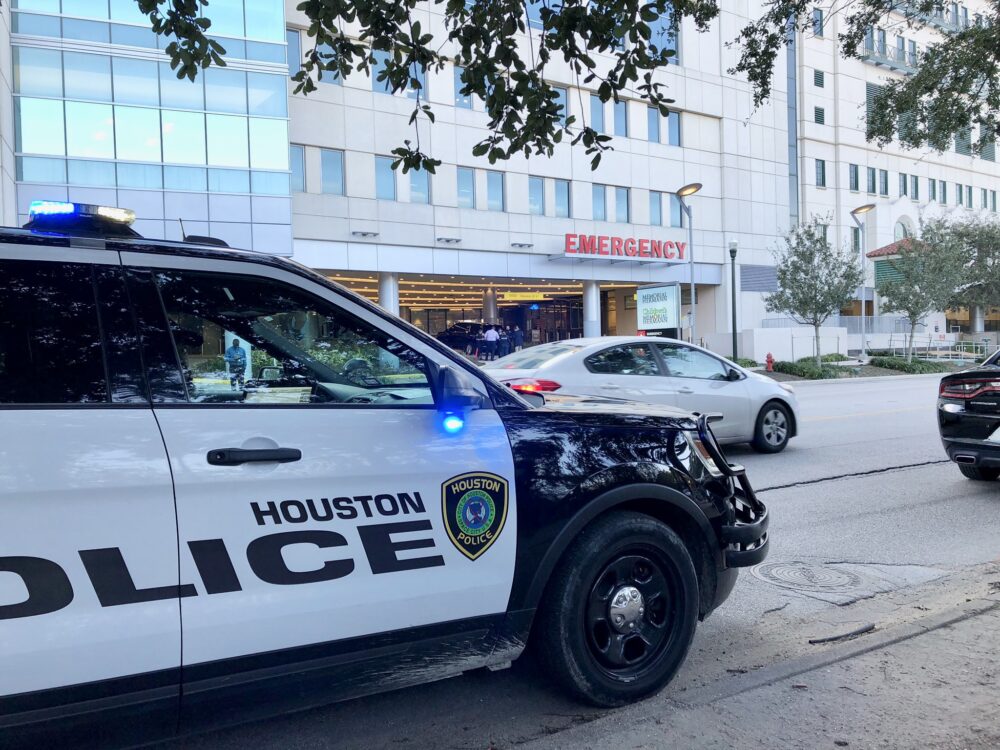
Members of the Houston Police Department’s mental health diversion task force are looking for $7.4 million in extra funding to expand the task force’s efforts on Thursday.
The combined $7.4 million in funding would go toward expanding four mental health police reform initiatives, including crisis intervention response teams and crisis call diversion. The diversion programs are a result of police reforms Houston Mayor Sylvester Turner proposed in April 2021. The Houston Police Department and the Harris Center for Mental Health and IDD collaborate to divert 911 calls involving mental health crises to counselors at the Harris Center.
According to HPD’s mental health division, calls to the crisis intervention team are going up every year: The team received 45,855 calls in 2020, around 5,000 more than the prior year. Of those calls in 2020, 4, 527 were diverted to the Harris Center for Mental Health and IDD.
Wayne Young, CEO of the Harris Center, said counselors on the crisis call diversion team also connect callers with additional resources after deescalating the situation.
“It isn’t kind of hang up and we’re done,” Young said. “We are the public mental health system, and so we’re often able to engage those individuals in care and find other additional supports in our service array that can meet those needs.”
The task force estimated that the crisis call diversion collaboration saved first responders $821,600 a year. Dr. Stephen Sherman, a research fellow specializing in criminal justice at Rice University’s Kinder Institute, said framing the impact of crisis diversion in terms of dollars saved is intentional: Funding for those mental health initiatives come from the city and its criminal justice departments.
When it comes to the effectiveness of crisis diversion has on reforming policing, Sherman said “the devil is in the details.”
“The $10 million question is how involved the police are going to be,” he said.
One of the initiatives the task force hopes to expand is the crisis intervention response teams. Created in 2016, the 12 units partner a crisis intervention trained police officer with a master’s level clinician to respond to mental health crises. An evaluation of the intervention teams’ 2020 results found that less than one out of 20 calls handled by these units end with an arrest.
But critics say that a higher level of police involvement in crisis diversion negates the effect of that diversion.
Nick Hudson, a lawyer at the Texas American Civil Liberties Union, said people with untreated mental illnesses are 16 times more likely to be killed in a police encounter — a risk he said isn’t reduced even if mental health counselors are present with law enforcement.
“If our goal is to keep people safe, it’s important that we have as many mental health professionals dealing with mental health problems as possible and that we don’t overtask police with things they’re not trained in or are not the best response for,” Hudson said.

 74 °F
74 °F